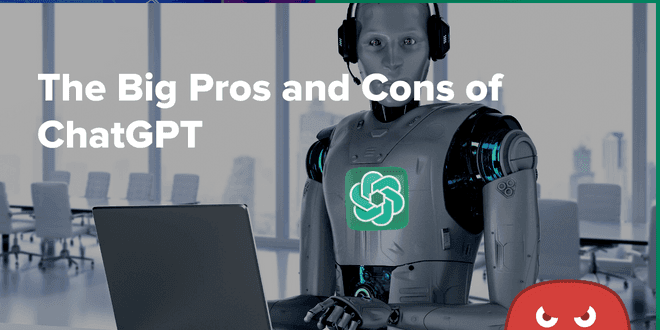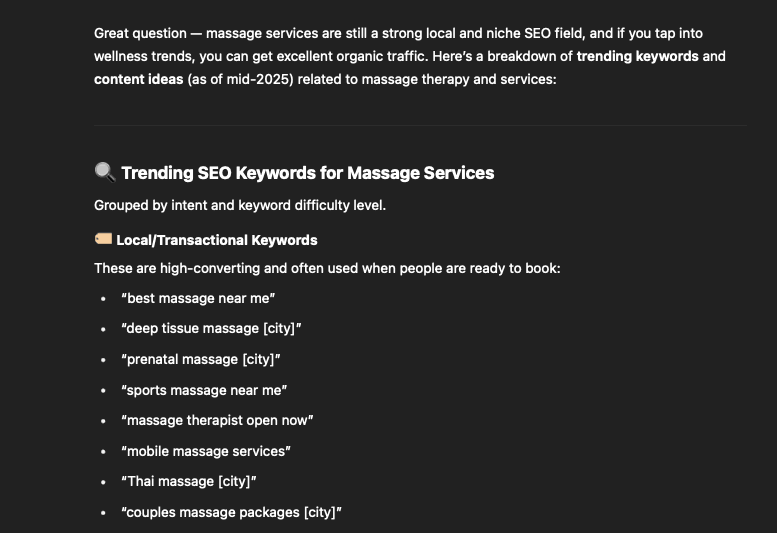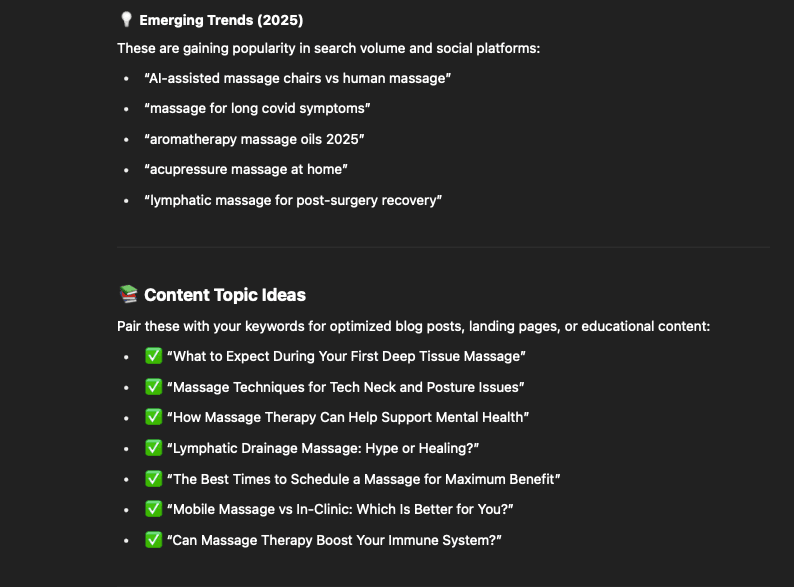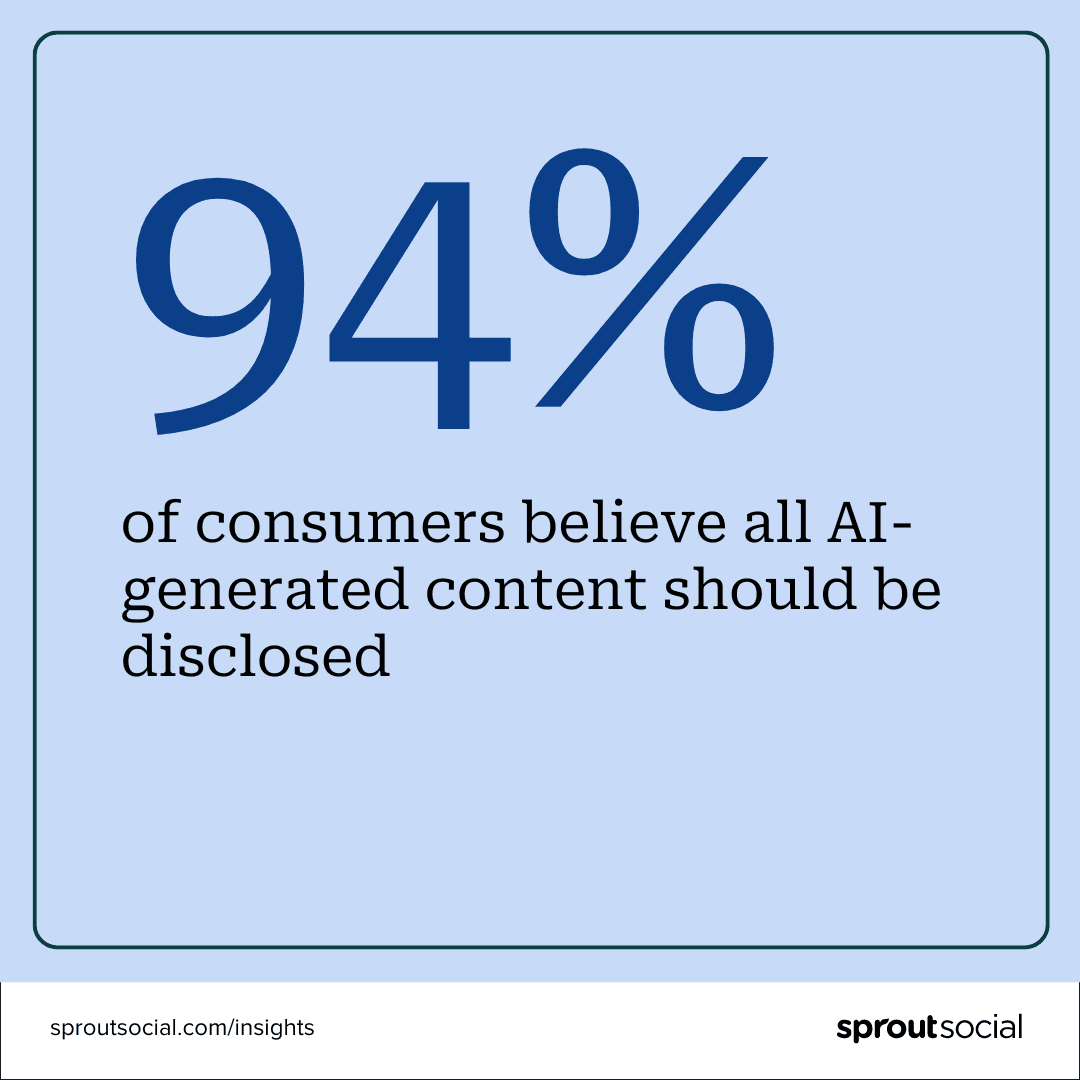
Pros and Cons of ChatGPT in 2025: What Businesses Should Know
What are the Pros of Using ChatGPT in 2025?
Let’s begin with the positives, of which there are quite a few. After all, ChatGPT is an extremely powerful and sophisticated chatbot capable of:- Writing articles, scripts, and stories
- Generating images based on prompts
- Coding in various programming languages
- Searching the web for information
- Defining concepts, terms, and ideas
- Brainstorming content ideas
#1: It dramatically speeds up content creation
 Writer’s block, doom scrolling, streaming services.
Everywhere you look, there’s a distraction eager to steal you away from your content writing – ESPECIALLY if you’re trying to tackle a complicated subject.
ChatGPT is a godsend in this regard.
No matter what you’re writing about, you can use ChatGPT to get the ball rolling.
It’s an amazing brainstorming tool that will instantly provide you with:
Writer’s block, doom scrolling, streaming services.
Everywhere you look, there’s a distraction eager to steal you away from your content writing – ESPECIALLY if you’re trying to tackle a complicated subject.
ChatGPT is a godsend in this regard.
No matter what you’re writing about, you can use ChatGPT to get the ball rolling.
It’s an amazing brainstorming tool that will instantly provide you with:
- Keywords (which you should further vet with a tool like ours)
- Topic ideas
- Introductions
- FAQs
- Outlines
- Sentences
- Paragraphs
Using ChatGPT to brainstorm ideas: an example
Let’s try using ChatGPT as a brainstorming tool. Imagine that you need content for your website selling your masseuse services, but you don’t know where to start. You can kick things off by asking ChatGPT to provide some relevant keywords and topics related to massage services: As you can see, we’ve already got some keywords and topic ideas to get our creative juices flowing.
Its response was quite long, and even included some emerging trends and content topic ideas:
As you can see, we’ve already got some keywords and topic ideas to get our creative juices flowing.
Its response was quite long, and even included some emerging trends and content topic ideas:
 These are especially useful, as they’re topics that are currently gaining favor with your (fictional) target audience.
If you were a masseuse, just seeing these topic ideas would probably set your mind ablaze with content possibilities.
Also, while ChatGPT is capable of generating entire articles, we don’t recommend taking this approach.
Instead, you should use it as your dedicated writing assistant.
It will help you fill in the gaps whenever you get stuck, which is extremely helpful.
Remember, ChatGPT can hallucinate and provide inaccurate information, so you should never publish raw AI content.
These are especially useful, as they’re topics that are currently gaining favor with your (fictional) target audience.
If you were a masseuse, just seeing these topic ideas would probably set your mind ablaze with content possibilities.
Also, while ChatGPT is capable of generating entire articles, we don’t recommend taking this approach.
Instead, you should use it as your dedicated writing assistant.
It will help you fill in the gaps whenever you get stuck, which is extremely helpful.
Remember, ChatGPT can hallucinate and provide inaccurate information, so you should never publish raw AI content.
#2: It’s available whenever you need it
Next, the fact that ChatGPT (and other AI assistants) are available 24/7, 365 is pretty great. Even if it’s 3:00 AM on Christmas morning, you can pull up ChatGPT to brainstorm content ideas. This is beneficial because you can work with ChatGPT whenever inspiration strikes. If you’re at home in your pajamas getting a glass of milk when you suddenly get a killer content idea, you can get ChatGPT to start fleshing it out for you immediately. That certainly beats having to wait until Monday to share your brilliant idea with your team, which may have slipped your mind by then.#3: It’s incredibly cost-efficient
 From a business perspective, one of the strongest appeals of ChatGPT is its ability to save money.
For startups and small businesses lacking in-house content creators, they can use ChatGPT to help:
From a business perspective, one of the strongest appeals of ChatGPT is its ability to save money.
For startups and small businesses lacking in-house content creators, they can use ChatGPT to help:
- Write blogs and video scripts
- Generate simple images and infographics
- Draft email copy
- Brainstorm ideas for future content
- Build out the web copy (and design) of their website
#4: It’s extremely versatile
As time goes on, ChatGPT keeps adding new capabilities (and gets better at existing ones). Currently, its versatility is off the charts. Here are just a few of the things it can do:- Create business plans
- Design custom images and visuals
- Edit and clean up existing images
- Write and debug code
- Answer questions
- Research topics
- Translate languages
- Summarize large volumes of data (and text)
#5: It’s extremely easy to get started
Despite being so sophisticated, ChatGPT isn’t difficult to use at all. Instead, it boasts a seamless user experience. It has a clean interface, and it responds to natural language prompts, thanks to its natural language processing (NLP). It’s a large language model (LLM), so there’s no need to restrict yourself to ‘search engine speak.’ That means you can talk to ChatGPT (and other LLMs) just as you would a friend or colleague. You can ask long-form questions, make requests, and build off existing prompts to further refine your content. If there’s something you don’t like about a particular output, all you have to do is ask ChatGPT to change it. ChatGPT’s ease of use undeniably added to its meteoric rise in popularity.What are the Cons of Using ChatGPT in 2025?
Now that you’ve seen the good, it’s time to confront the bad. ChatGPT is not a perfect tool, and there are some important caveats you should understand before using it. These downsides aren’t exclusive to ChatGPT, either. They apply to all AI tools for marketing, including other chatbots and AI-powered writing assistants.#1: Problems with accuracy
AI chatbots like ChatGPT still struggle with accuracy. Besides the occasional hallucination, AI tools can deliver outdated information that’s no longer relevant (or true). This isn’t a downside to shrug off, either, as doing so can land you in hot water legally. Just look at the recent cases affecting lawyers who used AI to help write court filings. AI like ChatGPT can invent fake law cases, causing attorneys to get in serious trouble for citing made-up cases in their lawsuits. So, yes, using AI haphazardly can get you in all sorts of trouble, even fired!
Whether you’re preparing a court filing or drafting a simple blog post, do yourself a favor and fact-check your AI outputs. Doing so only takes a few minutes, and it could save your reputation from taking a serious blow.
So, yes, using AI haphazardly can get you in all sorts of trouble, even fired!
Whether you’re preparing a court filing or drafting a simple blog post, do yourself a favor and fact-check your AI outputs. Doing so only takes a few minutes, and it could save your reputation from taking a serious blow.
#2: Lacks originality and emotional depth
It’s a mistake to think of AI tools as content creators. In actuality, they’re content reframers and remixers. All an AI chatbot can do is draw from its training data and what it finds on the web. In other words, ChatGPT and related tools don’t have anything original to say. This conflicts with Google’s quality standards, namely its E-E-A-T (experience, expertise, authoritativeness, and trustworthiness) system. For content to rank well, it must demonstrate expertise and share first-hand experiences, which are two things AI can’t do. Bear in mind that being original doesn’t have to be difficult. As long as you have a unique point of view and way of looking at things, you’ll stand out from the crowd. Also, don’t forget to include stories and experiences from your actual life, as those cannot be replicated!#3: Brand voice mismatch
Your brand’s voice is its personality. It’s how your audience imagines it would be like talking to you in person. Strong brand voices:- Build trust with your audience
- Foster emotional connections
- Make your brand stick out from competitors
#4: SEO risks
Generic, low E-E-A-T content doesn’t perform well on Google. That means raw, unedited AI content doesn’t stand much of a chance of achieving high rankings. Don’t confuse our skepticism with disdain, though. It IS possible to rank with (mostly) AI-generated content, you just need to enhance its quality through fact-checking and editing. Yet, as the March 2024 Core Update pointed out, Google does not care for low-quality AI content that provides no value to users. This makes using AI tools like ChatGPT for SEO pretty risky without heavy editing and oversight.| Want to achieve strong SEO results while avoiding all the risks? Sign up for HOTH X, our 100% managed SEO service! |
#5: Trust and compliance issues
As we’ve already mentioned, misuse of AI can cause legal issues. Moreover, as the Hookline& survey highlighted, relying on AI causes issues with trust. This is especially true when brands use AI to create content but don’t disclose that fact. According to Sprout Social, 94% of consumers believe all AI-generated content should be disclosed: We recommend adding a disclosure at the top of the page that says something like, “This content was generated by AI but edited and fact-checked by our team.”
Being transparent like this will help you retain your customers' trust while using AI.
Before we move on, here’s a breakdown of the main pros and cons of ChatGPT:
We recommend adding a disclosure at the top of the page that says something like, “This content was generated by AI but edited and fact-checked by our team.”
Being transparent like this will help you retain your customers' trust while using AI.
Before we move on, here’s a breakdown of the main pros and cons of ChatGPT:
| Pros | Cons |
| Speeds up content creation | Issues with accuracy and outdated content |
| Available 24/7 | Lacks originality and emotional nuance |
| Extremely cost-effective | Won’t accurately reflect your brand’s voice |
| High versatility (writing, coding, searching, etc.) | Risky for SEO |
| Little to no learning curve | Can cause trust and compliance issues |
When (and When Not) to Use ChatGPT
 To us, AI is a content creation assistant, not a full-fledged solution.
As a result, we think AI tools like ChatGPT are best suited for:
To us, AI is a content creation assistant, not a full-fledged solution.
As a result, we think AI tools like ChatGPT are best suited for:
- Ideation. Let ChatGPT and other tools fuel your creativity instead of replacing it.
- Metadata. Title tags and meta descriptions are necessary, but their quality isn’t massively important. Thus, you can save time by letting AI take the wheel.
- Outlines. Any marketing manager can tell you that creating outlines can be a real pain, especially when you have other tasks to focus on. AI excels at outlining articles, so let it work its magic!
- FAQ generation. ChatGPT is excellent at generating relevant questions related to any topic.
- Client-facing content. For client-facing content meant to generate leads, you need top-tier copy that reflects your brand voice (in other words, leave it to humans).
- Medical, legal, or financial content. These are YMYL (your money, your life) topics, and they receive extra scrutiny from Google. Bearing that in mind, the last thing you want to do is publish a falsehood or inaccuracy that could affect someone’s health, happiness, or finances.
- Thought leadership content. These pieces demonstrate your expertise and convince users that your brand rises above the competition. They ensure the effectiveness of your entire sales funnel, so don’t cut costs with AI here!
How to Make the Most Out of ChatGPT for SEO Content
Before we wrap up, here are some pointers for improving the quality (and rankability) of your AI-generated content:- Fact-check and edit. Remember, all it takes is one inaccuracy or hallucination to do harm to your reputation, so Google everything ChatGPT says to confirm it’s the truth.
- Add original insights and experiences. Even if some of your copy is generic, adding some first-hand experiences and original insights will spruce it right up.
- Pair AI writing with expert keyword research and strategy. Just because AI is writing some of your content doesn’t mean you don’t have to do keyword research. The stronger your overall SEO strategy is, the easier it will be to find success with AI content.
Closing Thoughts: Pros and Cons of ChatGPT for Business Purposes
ChatGPT is a revolutionary tool that continues to amaze users with its versatility, speed, and ease of use. Yet, as Uncle Ben said, “With great power comes great responsibility.” The tool still has its limitations, which is something marketers must be cognizant of at all times. When used properly, ChatGPT can drastically enhance your content creation process. Used irresponsibly, it can literally lead to your business’s downfall, so be cautious. Do you want to successfully integrate AI into your marketing plan? Book a free strategy call with us to learn how to capitalize on the benefits and mitigate all the risks!The author
Rachel Hernandez
description
Previous
Helpful Content is LLM-Friendly Content: What That Really Means
Next
Why You Can’t See 100 Results on Google Anymore
Discussion
Comments
Anju
October 2nd, 2025
nice blog
Louise Savoie
September 24th, 2025
I really enjoyed this! ChatGPT has been super helpful for me when brainstorming ideas and creating quick drafts. But I agree, you still need to double-check everything to make sure it sounds right and fits your brand. Thanks for sharing this!
muhammed fasin
December 5th, 2023
nice blog
